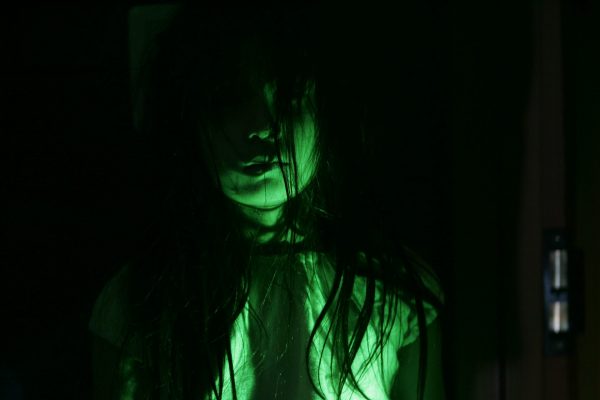Takashi Miike, Renpei Tsukamoto, Manabu Asô/ Japan/ 2003-2006/ 327 mins
Boxed sets are by their very design a mixed bag, particularly when dealing with a release that covers a horror franchise. Even when the first film is essential, such as Ringu, there’s an inevitable case of diminishing returns that will limit the appeal for all but the most die-hard fans of a series. In the case of the One Missed Call trilogy, even the first film isn’t particularly highly regarded, despite having the inimitable Miike Takashi behind the camera.
The plot has more than a little in common with the aforementioned Ringu, with mobile phones replacing video cassettes as the source of supernatural dread. A series of teens receive voicemails from near-future versions of themselves at the moment of their deaths. When they start to die for real, Yumi and Hiroshi (Ko Shibasaki and Shin’ichi Tsutsumi) try to unlock the mystery before Yumi falls victim to the sinister cell.
For a director that was on a streak of such singular, exuberantly gonzo films like Audition, Dead or Alive, Ichi the Killer and Gozu, One Missed Call is comparatively subdued. It’s far more structurally and tonally similar to and number of other J-Horrors featuring a vengeful, lank-haired ghost girl with a tragic back story. It’s easily among Miike’s most mainstream offerings, albeit with a few characteristically outlandish touches such a severed arm continuing to key in a number, corpses coughing up boiled sweets, and a show-stopping exorcism broadcast on live TV. For the time, this scene holds a nice satirical poke at the exploitation inherent to reality TV, complete with a horrific outcome. As this comes just over halfway through proceedings however, the film has nowhere left to go to raise the pulse when it settles back into those all-to-familiar beats.
One Missed Call does offer an intriguing thematic thread about abusive childhoods that links its heroine to its ethereal antagonist, grounding the film in a more mundane horror. Miike can certainly craft an attractive picture and there are some genuinely creepy moments. It isn’t going to figure among the favourites of most fans of his extensive body of work.
One Missed Call 2 attempts to expand the scope of the mythology, but succeeds only in muddying already murky waters. The phone calls are back, but this time they’re picking off folk who are answering other folks’ phones. These calls turn out to have a source in Taiwan, and kindergarten teacher Rie Mimura and journalist Asaka Seto head out to solve the mystery before they are next. Where the original had the odd flourish of individuality thanks to Miike, the sequel lacks anything to haul it above the painfully generic. Throwing another ghost girl into the mix needlessly clutters up the series’ lore, and as one killed by vengeful locals due to having special powers, the antagonist’s similarity to Ringu‘s Sadako borders on outright plagiarism.
Things pick up with One Missed Call 3: Final, which bins the extra mythology of the sequel and sees the original antagonist return to pick off a class of students during a school jolly to South Korea. Most of the attendees had been guilty of bullying a fellow student until she attempted suicide. The twist here is that the recipient of the haunted call can forward the curse on to another person. This adds an extra hint of Battle Royale distrust among erstwhile friends that goes nicely with a tone that’s more Final Destination than Dark Water. It’s still very formulaic, but with a sense of humour very much restored, it ends up an enjoyable caper, if not particularly memorable one.
Availble on Blu-ray from Mon 24 Feb 2020
